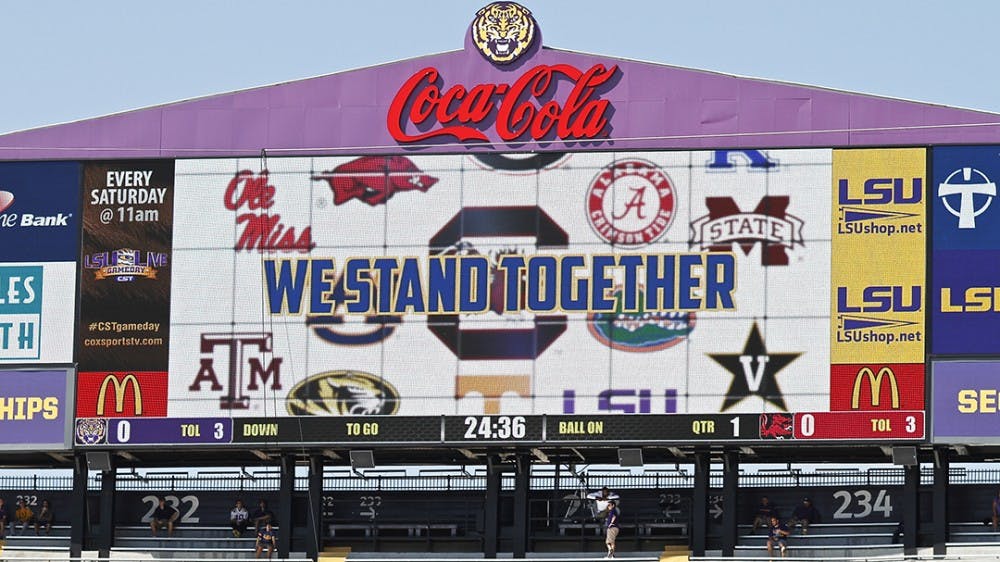The decision to move South Carolina's home game against LSU to Baton Rouge, Louisiana following the historic flood that hit Columbia was not taken lightly.
While on one hand the promise of having football played again offered a return to normalcy, South Carolina's athletic department and coaching staff also had to consider safety precautions and how the game would stretch already separately scarce resources. Reflecting back on that decision with the benefit of having a year's worth of hindsight, it certainly seems like they made the right call.
One thing that often goes unnoticed in the process of moving the game was that the athletic department had to continue to work after the flood, even when the university and city shut down.
Executive associate athletic director Charles Bloom described the dilemma his staff faced when trying to make a decision: "Williams-Brice Stadium never became unfit to play. However, you didn't want to take emergency personnel that were making life and death efforts around the city and pull them away to host a game."
While playing the game in Columbia didn't feel appropriate as the city continued to recover from the flood, the athletic department recognized the importance of having the game as a way for fans to escape pain and suffering.
"It's a delicate decision," Bloom said. "I equate it to playing after 9/11. It was too soon to play a week after; but two weeks after, we needed to start healing. I think that football and sports does that."
With Columbia out of the question, efforts to move the game to a neutral location were explored. Specifically venues in Charlotte, Atlanta and Jacksonville, Florida.
Ultimately, conflicts and financial restrictions and venue conflicts made the aforementioned locations unrealistic host cities for the game, leading South Carolina and LSU to the decision to flip the home game.
Flipping a hope game obviously presents a competitive disadvantage, but the opportunity to host a game also presents a significant fraction of the department's budget. Simply cutting one of just seven of those home games would severely stretch the department's financial flexibility, but to LSU's credit, they assisted in easing South Carolina's limitations.
"LSU was fantastic," Bloom said. "They treated it like it was our home game. They gave us the net proceeds from the game."
South Carolina would later be able to reciprocate LSU's gratitude when they coordinated relief efforts this past August when Baton Rouge suffered from their own severe flooding problems.
In retrospect, the department navigated a very fragile decision while preserving both respect toward the needs of the country while also ensuring the game would in fact be played. A year later, the way the way the department handled the dilemma looks even more masterful. Ramifications from the flood will continue to haunt the city, but on the whole Columbia is moving toward a nearly full recovery. A little piece of that process was giving Gamecock fans a way to momentarily escape the heartache and suffering and to spend their Saturday like they would another: watching South Carolina football.

